The Brain and Data Sciences Lab (Charney Lab) is known for using multiple types of genomic data to dissect the clinical features of schizophrenia and bipolar disorder, developing a novel framework for human brain research with the Living Brain Project, and advocating for the rapid translation of genomic findings to early-phase clinical trials of experimental therapeutics.
The Living Brain Project, a multiscale, data-driven investigation of the human brain wherein a single living population is being studied using all of the tools available for human-subject neuroscience, including the tools of molecular and cellular neurobiology that to date have been applied primarily in the post-mortem setting.
The lab is also a leader of the Psychiatric Genomics Consortium Targeted Schizophrenia Sequencing Study, a sequencing study of over 20,000 individuals that, when combined with existing data, will constitute the largest assessment of the role of rare damaging genetic variants to the risk of schizophrenia. It also leads the Mount Sinai site of the PsychEMERGE consortium, which is a large coordinated effort amongst the largest academic biobanks in the United States to integrate electronic medical records and genetics to better elucidate risk factors for mental illness.
Funding: National Institute of Aging/NIH, Michael J. Fox Foundation, Virginia Polytechnic Institute and State University
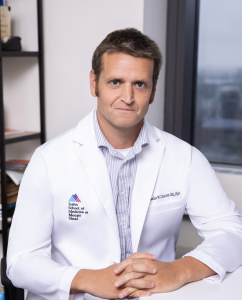
Alexander Charney, MD, PhD
Associate Professor | Psychiatry, Neuroscience, Neurosurgery, Genetics and Genomic Sciences
Director | Charles Bronfman Institute for Personalized Medicine
Executive Director | Blau Center
alexander.charney@mssm.edu
Research
The Living Brain Project
To understand the human brain, scientists use clinical observation, neuropharmacology, neuroimaging, neurophysiology, neuromodulation and molecular-cellular neuroscience. However, applications of molecular-cellular neuroscience have traditionally been limited to post-mortem specimens or cultured neural cells, whereas the other approaches require interactive living subjects. As a result, it is rare that a single cohort is studied using the full human subject neuroscience toolkit. The biological foundations of neuropsychiatric traits therefore remain largely unknown, and understanding the inner workings of the human brain continues to be one of the greatest scientific challenges.
The Living Brain Project is a multiscale, data-driven investigation of the human brain wherein a single living population is being studied using all of the tools available for human-subject neuroscience. Led by Drs. Alexander Charney and Brian Kopell, this study will enroll 500 men and women from young to old age receiving deep brain stimulation (DBS) over a 10-year period. Batteries of neuropsychological testing will survey all domains of cognition and mental health, while electronic medical records will create a high-resolution digital record of the health of each participant. Brain structure and function will be recorded through multi-modal neuroimaging, and during each of two DBS electrode implantation surgeries (one per hemisphere) specimens will be obtained from the participant’s brain, skin and blood for cutting-edge multiomic analyses. With this unique cohort, the Living Brain Project aims to discover how interactions between the various levels of neurobiology, neurophysiology and neuroanatomy assessed give rise not only to the chronic traits that have been probed in post-mortem studies (e.g., depression, dementia), but also acute states that can only be assessed in a living cohort (e.g., sadness, working memory).
The Blau Center
Multimodal Neuroimaging Techniques in the Living Brain
The multimodal neuroimaging techniques, including but not limited to functional and structural magnetic resonance imaging (MRI) and diffusion tensor imaging (DTI) facilitate the diagnosis of psychiatric disorders and the development of new medications. Among the modalities, the structural MRI and DTI are widely utilized to investigate the gray matter and white matter anatomical anomalies for neurodegenerative disorders which may contribute to the cognitive deficiency in psychiatric disorders. Our project applies both structural MRI and DTI modalities to identify the microstructural features of gray matter and white matter to patients with Parkinson’s disease. The features include cortical thickness, cortical surface area, subcortical volume and the volume, average length, axial diffusivity, radial diffusivity, mean diffusivity, and fractional anisotropy of white matter fiber tracts, as well as topological features of anatomical network. The integration of neuroimaging, multiomics and neuropsychiatric phenotyping could contribute to identify the molecular mechanism that influence brain structure and function.
COVID-19 Biobank
PGC3
Heritability of Gene Expression in the Brain
Genome Wide Association Studies of Depression
Identifying the genetic targets of pro- and antipsychotic drugs
RECOVER
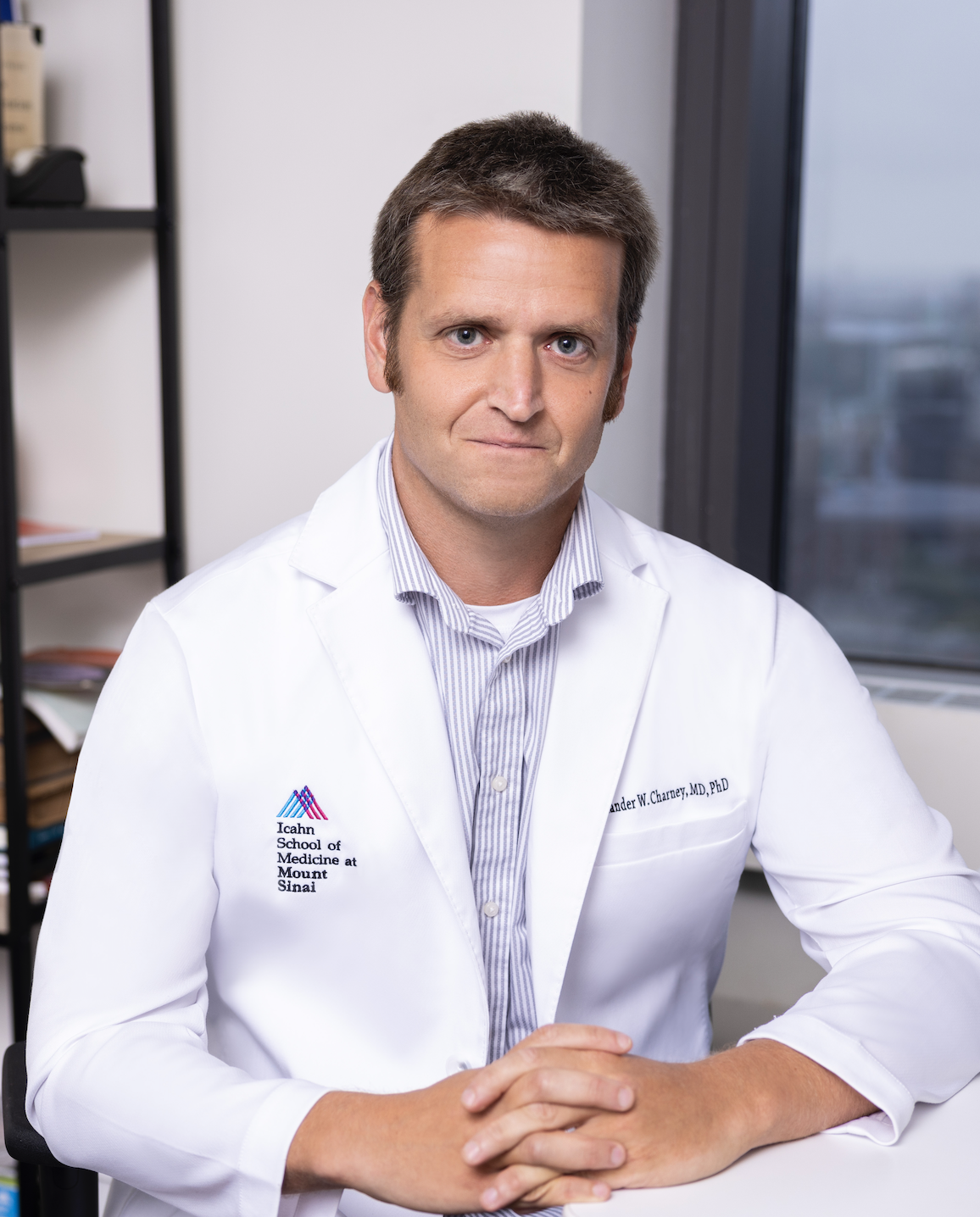
Alex Charney | Associate Professor | alexander.charney@mssm.edu
Alexander Charney, MD, PhD is an Assistant Professor at the Icahn School of Medicine with primary appointments in the Departments of Psychiatry and Genetics & Genomic Sciences, as well as secondary appointments in the Departments of Neuroscience and Neurosurgery. He received his MD and PhD under the mentorship of Pamela Sklar, MD, PhD, and Eric Schadt, PhD, two of the world’s foremost experts on large-scale genomics and multiscale biology. He has been the lead data scientist on some of the largest genetic studies ever conducted on schizophrenia and bipolar disorder, including genome-wide association studies, copy number variant studies and rare sequencing variant studies. Currently, he leads several of the largest studies in the field of psychiatric genomics and has established a unique approach to human brain research as the founder and primary investigator of the Living Brain Project. As a physician-scientist specializing in the neurobiology of severe mental illness, his primary goal is to translate genomic discoveries to experimental therapeutics. Alex likes to kayak, work out, and play the drums and guitar!

Nicole Bussola | Postdoctoral Fellow | nicole.bussola@mssm.edu
Nicole joined the lab as a Postdoctoral Fellow in June 2023. She obtained her B.Sc. and M.Sc. in Mathematics – Mathematical Sciences curriculum – at the University of Trento, Italy. She then earned her PhD in Biomolecular Sciences – Expertus in Computational Biology from the Center for Integrative Biology, University of Trento, with a joint scholarship from the Bruno Kessler Foundation. Her PhD research focused on AI algorithms for multimodal data in Precision Medicine, specifically on predictive models using high-throughput omics and bioimaging data to improve patient stratification for diagnostic and prognostic endpoints. Nicole also possesses practical experience as a Data Scientist with an AI service company in Rovereto, Italy, where she supervised AI projects related to implement software solutions for precision medicine. In the Charney lab, Nicole contributes to the Living Brain Project by analyzing gene expression data to identify blood-based brain biomarkers.

Lora Liharska | Bioinformatician III | lora.liharska@mssm.edu
Lora obtained her PhD in the lab and is now a Bioinformatician III in the Blau Center, leading all genetic analyses in our schizophrenia and rare variant carrier cohorts.

Kelly Morgan | Chief of Staff | kelly.morgan@mssm.edu
Kelly is Chief of Staff to Dr. Charney. She received her Master’s of Health Administration in 2021 and has worked in healthcare operations for the past 4 years by providing administrative support to various health care leaders. In her free time she enjoys exploring New York City with her pug Porky.

Nicole Simons | Assistant Professor | nicole.simons@mssm.edu
Nicole joined the lab in 2020 after her redeployment to Dr. Charney’s COVID-19 Biobank research team. She finished her PhD in the lab in 2025. Nicole is Program Director of the Blau Center. Her work involves examining the clinical and neurobiological effects of rare, protein-truncating variants that confer risk for schizophrenia. Nicole’s favorite part of her job is interacting with patients and their families. Her favorite parts of life include her family, mountains, vanilla candles, and summer.
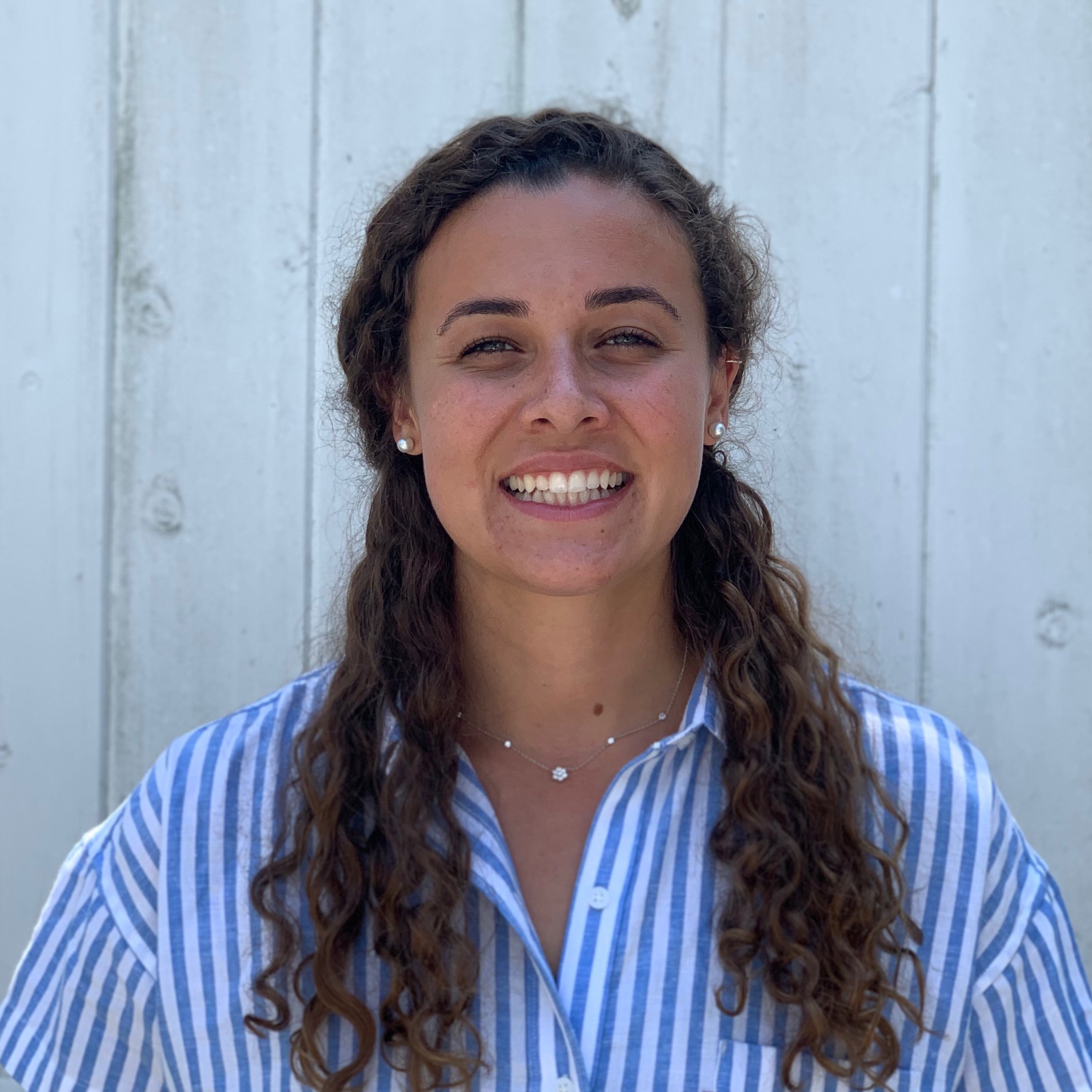
Anina Lund | PhD Student | anina.lund@mssm.edu
Anina graduated from the University of California Berkeley in 2020 majoring in Cognitive Science and minoring in Music. In undergrad, she worked in Dr. Andrew Dillin’s lab performing research on the genetic and molecular mechanism that regulate aging and aging-related disease. Anina is currently a fifth year Neuroscience PhD student co-mentored by Dr. Noam Beckmann, Dr. Alex Charney and Dr. Eric Nestler studying the integration of gene expression and imaging from human patients enrolled in the Living Brain Project. Outside of lab, Anina is always up for coffee and going on adventures.
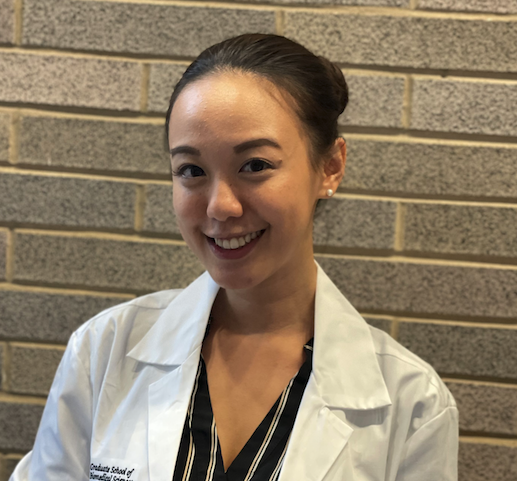
Jolie Hoang | PhD Student | jolie.hoang@icahn.mssm.edu
Jolie is a second-year Neuroscience PhD student, co-mentored by Dr. Alex Charney and Dr. Noam Beckmann. Her research, positioned at the intersection of AI, genetics, and neuroscience, applies machine learning to analyze multi-omics data and brain imaging in the Living Brain Project. She previously studied medical biology at MCPHS University and clinical psychology at Columbia University. Her past research includes work in neuroimaging and cognitive neuroscience under Drs. Matcheri Keshavan and Paulo Lizano at Beth Israel Deaconess Medical Center (Boston), and global mental health initiatives with Drs. Lawrence Yang and Ragy Girgis at Columbia University. Outside the lab, Jolie enjoys playing soccer, exploring NYC with friends, and traveling the world.
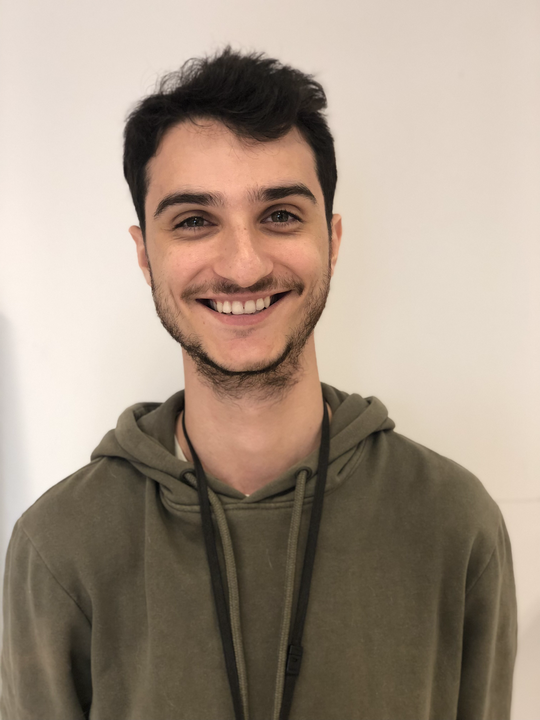
Steven Ascolillo | Program Manager | steven.ascolillo@mssm.edu
Steven began working at Mount Sinai in 2019 as an Accessioning Specialist for the department of Genetics and Genomic Sciences. He transitioned to the Charney lab in June of 2020, after providing support to Dr. Charney and the Mount Sinai COVID Informatics Center during New York’s first COVID-19 surge. Steven is now a certified project manager and manages projects in the Charney Lab and the Charles Bronfman Institute for Personalized Medicine. Coming to New York from Massachusetts, Steven enjoys spending his free time at sporting events, whenever his teams are in town. He also enjoys spending time with his dog Nanook, seeing shows on Broadway, and enjoying everything else New York City has to offer!
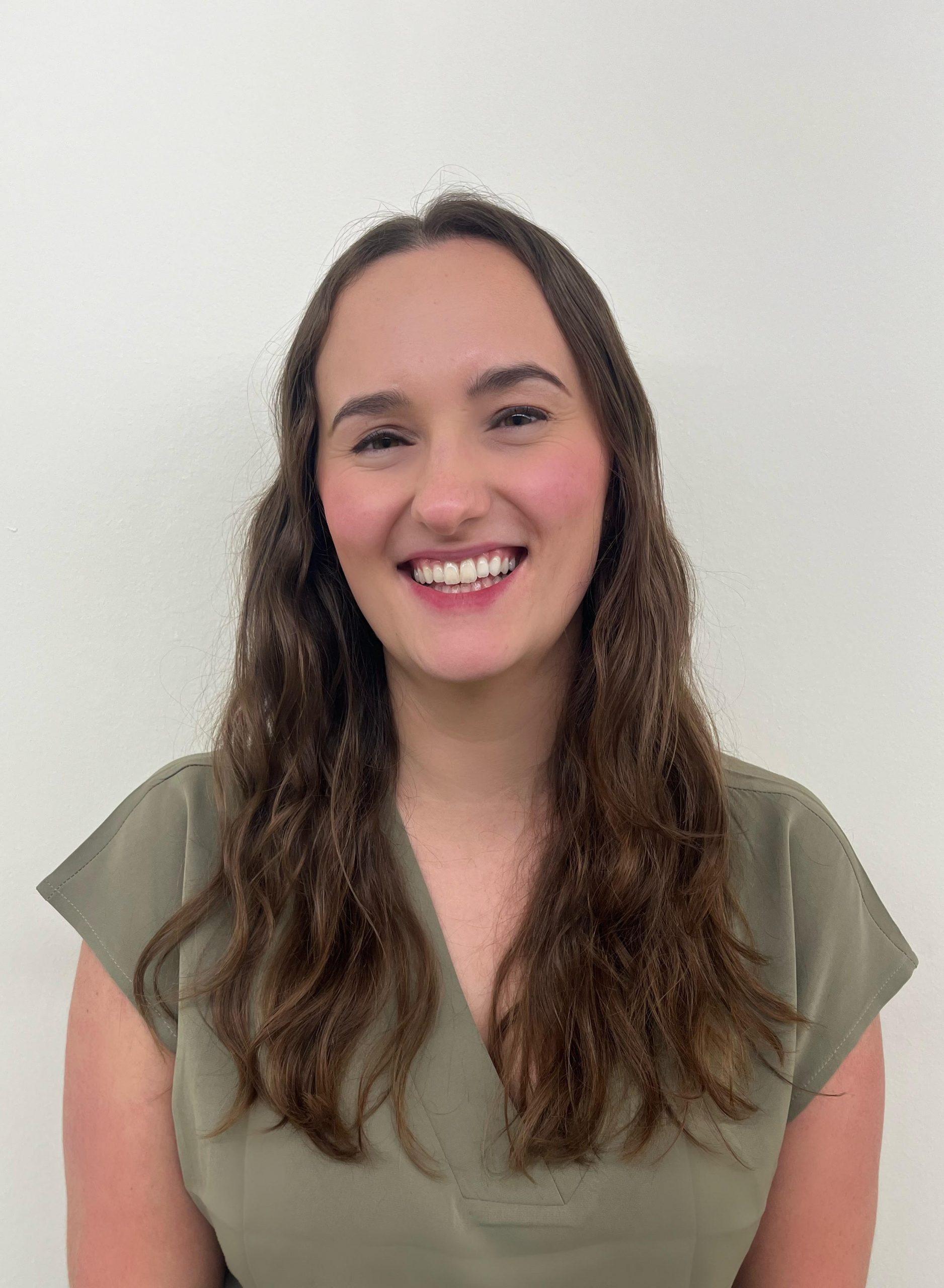
Heather Thibeau | Clinical Research Manager | heather.thibeau@mssm.edu
Heather joined the lab in 2024 as a Clinical Research Manager after earning her Master of Science in Clinical Research from Boston University. Her passion for psychiatric clinical research began during her undergraduate studies in Psychology at Stonehill College in Massachusetts. Prior to her current role, Heather worked at Boston Medical Center and Beth Israel Deaconess Medical Center in Boston, MA where she supported families of individuals experiencing their first episode of psychosis by offering behavioral interventions and connecting them with support and treatment options. In her free time, Heather enjoys exploring New York City with her friends and family.

Renata Gonzalez Chong | Clinical Research Coordinator II | renata.gonzalezchong@mssm.edu
Renata joined the lab in September 2023 as a Clinical Research Coordinator. She graduated from Bowdoin College in 2023 with a B.S. in Neuroscience and a minor in Digital Computational Studies. Renata has experience working with labs from Bowdoin College, Columbia University, and the Spanish National Research Council, where she has developed skills in microscopy and histological methods. She is interested in neurotechnology and the ethical applications of AI in neuroscience. Renata loves having jam sessions with friends, playing rugby in the park, and traveling.

Debbie Obiajulu | Clinical Research Coordinator I | deborah.obiajulu@mssm.edu
Debbie joined the lab in November 2024 as a Clinical Research Coordinator. She graduated from Harvard University in 2024 with her A.B. in Neuroscience and a minor in Computer Science. As an undergraduate student, she completed her thesis at Boston Children’s Hospital, researching novel paradigms to measure reward processing development in infants and children. Outside of work, Debbie enjoys listening to music, going on walks, trying new restaurants, and spending time with friends and family.

Vibhuti Patel | Laboratory Supervisor | vibhuti.patel@mssm.edu
Vibhuti joined the lab in July 2022 after obtaining her Master of Science degree in Biotechnology and Chemical Science from Roosevelt University in Chicago, IL. During her master’s, she worked on CRISPR/Cas9 and other molecular biology projects. In the lab, Vibhuti ensures the efficient and successful completion of multiple research projects and oversees wet-lab related experiments (e.g. PCR, genotype validation using sanger sequencing, electrophoresis, analyzing data, extraction, QC, and normalizing DNA). Vibhuti supervises and trains research associates in biospecimen processing and other wet lab work/assays. Outside of work, Vibhuti loves exploring new foods, traveling, cooking, and spending time with family and friends.
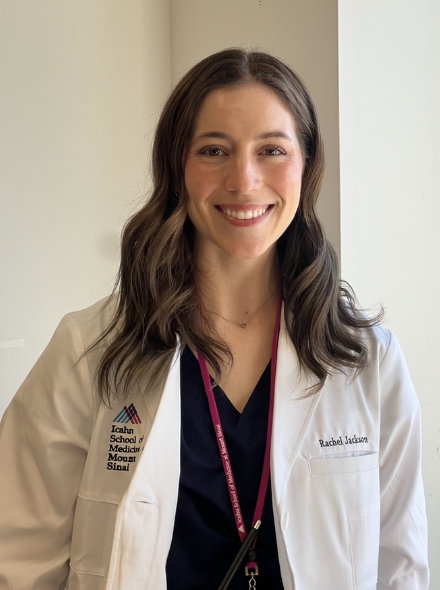
Rachel Jackson | Research Associate | rachel.jackson@mssm.edu
Rachel joined Dr. Charney’s lab in January 2022 as a Research Associate for the RECOVER project. Originally from the south, she attended the University of Oklahoma where she studied chemistry and psychology. During her time in Oklahoma, she worked alongside pediatric specialists at A Better Chance Clinic to provide developmental and behavioral therapy for children exposed to drugs and/or alcohol before birth. Rachel came to New York in January 2020 and began her career with Mount Sinai as a Clinical Research Coordinator for the IBD Center, where she was a part of highly innovative and successful clinical trials aimed to help patients with Crohn’s Disease and Ulcerative Colitis. Outside of the lab, Rachel enjoys reading, crocheting, and snowboarding.

Safrana Safa | Clinical Research Volunteer | safrana.safa@mssm.edu
Safrana joined the lab in June 2024 as a Clinical Research Volunteer for the Blau Center. She assists with data entry, screening patients, reaching out to providers, and data quality control. She also shadows the wet lab, gaining a deeper understanding of the various biological processes that take place within clinical research. Safrana is studying Biochemistry at Hunter College and enjoys painting, attending plays, and anything F1 related in her free time.

Rhyann Clarke | Clinical Research Volunteer | rhyann.clarke@mssm.edu
Rhyann Clarke joined the lab in September 2024 as a Clinical Research Volunteer in the Blau Center. She supports the Genomic Psychiatry Cohort project and a pivotal medical device clinical trial. Rhyann also works full time at Opentrons Robotics but her goal is to pursue a PhD in Biomedical Sciences. In her free time, Rhyann enjoys baking, running, and playing Catan, cribbage, and euchre.

Reggie Registre | Master’s Student | reggie.registre@icahn.mssm.edu
Reggie is a first-year MS student in Biomedical Sciences at the Icahn School of Medicine at Mount Sinai. He joined the lab in November 2024. Reggie earned a BS in Psychology from Penn State and an MPH in Community Health from the CUNY Graduate School of Public Health & Health Policy. His research interests include psychiatric disorders and their expression in specific populations. Outside the lab, he enjoys reading, exploring new restaurants, visiting museums, and spending time with family and friends.
